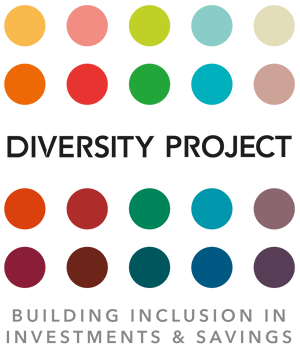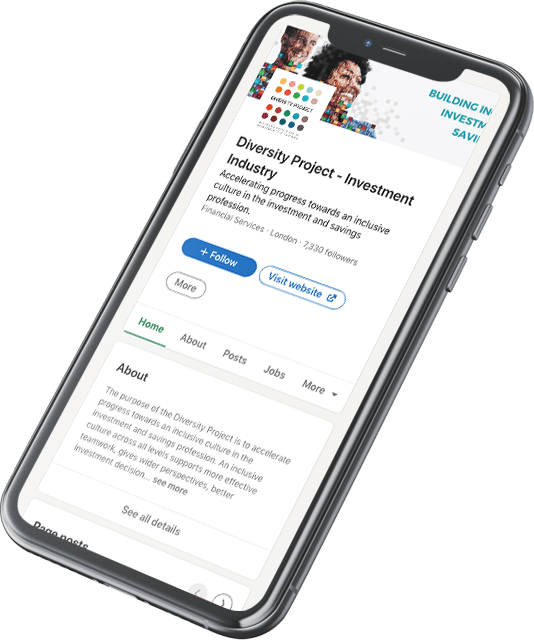For most people lucky enough to attend university, their memories of ‘fresher’ week will be filled with pangs of social angst and awkwardness, late-night parties, endless and somewhat bizarre society stalls, and the gastronomic delights of a nutritional wasteland. Yet for Sophie Pender, though some of these strike a chord, her enduring memory is of a seemingly innocuous question – one that would spark a project idea and change the course of her life (as well as the lives of many others).
The hidden-meaning laden in the repeated questioning of which school she attended left Sophie with an unsettling feeling. What a strange question to ask someone you have just met. How can they possibly know all the thousands of schools in UK? It later dawned on Sophie that this was crude social sorting device; one designed to distinguish the wheat from chaff. Anyone worth knowing could have only gone to one of a handful of schools.
Having scrapped and fought her way to three A*s at A-level and entry in to one of Britain’s top universities, Sophie had naively thought her path to a better life would be plain sailing. She certainly didn’t anticipate being judged on where she came from; for this was a time of life when you met like-minded individuals and discussed poetry and the arts (or whatever your chosen passion) until the early hours of the morning, was it not? It was precisely what all those McDonalds and John Lewis shifts had been for.
Of course, you know where this going. Sophie was wrong; that nagging feeling wouldn’t budge. The school question, combined with later examples of cliquey and snobbish accent-teasing, made her feel the sharp end of a ‘them’ and ‘us’ grouping; with the privileged elite lining up on one side, and the motley bunch of less-well-to-do on the other.
It is depressing to think that one’s perception of something and their eventual experience of it can be so different. As a survival mechanism, and desperate to find some relatable friends, Sophie set up a Facebook group called the 93% Club. For the uninitiated, it takes its name from the proportion of the UK population who didn’t attend private school. To her delight, plenty of other less-privileged students felt a similar need for support and belonging. Set up in 2016, it is now a registered nationwide charity and the largest network of state educated students in the UK, boasting affiliates in over 50 UK universities.
Having recently set up a Diversity Project workstream to focus specifically social mobility, we thought it would be great to sit down with a social mobility pioneer. What better way of learning than from a disrupter who has already achieved more institutional change than our current five-year bullet point objectives could ever dream of doing?
Can you tell us a bit about your background and what motivated you to set up the 93% Club?
I set up the 93% Club during my second year of university. In terms of my background, I grew up on a council estate in North London. It was effectively a single-parent household in the sense that my dad wasn’t around much; at different points in my life he was either an alcoholic or a drug addict, which made him incredibly volatile.
School became a bit of a safe-haven as I felt as if things couldn’t touch me from the outside world. The positive reinforcement I received there helped as, even though my mum would praise me, sometimes you need an external third party to say these things.
That was primary school, and then when I got to secondary school my dad passed away from an overdose. We didn’t have much money and so, for my mum, it was really important that I did well at school. This motivated me to work hard and when I turned 16 I was also juggling jobs at McDonald’s and John Lewis on top. Somehow though, I managed to do extremely well in my A levels and become the first person from my school to get three A*s.
University, however, was not the experience that I hoped it would be. I realised quite early that it was predominantly an extension of this schooling system that I had never been a part of. In my first week people would say to me, ‘What school did you go to?’ I thought it was such a weird question to ask because they can’t possibly know all the schools in the country. In hindsight, there are only about ten ‘top’ schools in the country, and they were trying to figure out whether I had gone to one.
This is just one example and it got to a point where I was so ashamed of my background that I’d feel embarrassed about the thought of my family or my mother visiting – I’m really ashamed to admit that now because they’ve made me feel that way.
I ended up in this weird mental place where I felt I didn’t really fit in anywhere. In my second year of university, I’d go to these law networking events and everyone was confident and ‘together’; they all seemed to know exactly what they were doing. I didn’t feel like I was and realised that I needed to find a way of being myself.
That was a turning point. I knew I needed to meet some people who are like me. So it started out as just a Facebook group but took off really quickly and we had about 500 members in the first couple months, which led me to affiliate the group as a society at the University of Bristol.
Why do you think social mobility has been somewhat left behind in the diversity debate?
Institutions often apply a broad brushstroke to diversity and have hiring-initiatives for women, ethnicity and diversity in general. In reality, the support that needs to be offered to a student or an employee from a lower socioeconomic background is not the same as the support that needs to be offered to individuals who are black, Asian, minority ethnic, women, LGBTQ+, differently abled, and vice versa.
The issues that individuals with diverse characteristics face can begin at different points. For example, I myself felt keenly disadvantaged as a working class individual trying to enter the legal profession and never felt this from the angle of gender, and despite this there were far more initiatives at the time promoting access into the profession for women and very little for students from my socioeconomic background. Importantly, it’s not a protected characteristic, meaning that individuals are not protected from unfair prejudice as a result of their socioeconomic background.
Considering my career through the lens of being a woman, the issues I’m likely to face begin higher up the career structure when you might be choosing between family and a career. I’ve always thought it was interesting how social mobility was never included in this conversation (and in entry level) because I always felt a lot more disadvantaged applying for roles as a working-class person than I did as a woman. Everyone sees the world through a lens, and their experiences create a filter that shapes their views.
In many senses, social mobility is invisible and working-class people who come into professions like law or finance, tend to assimilate and get completely lost. If you listen to my accent now you would never know that I grew up on a council estate in North London. People are so much nicer to me now that I sound like this. The onus is on people like me to talk about our stories and bring them to the forefront. If we don’t, no one has role models and everyone assumes you have to be pushed to get into these careers. It creates a horrible vicious cycle.
What do you say to people who argue that there isn’t an issue and that you are living proof that social mobility is alive and well in the UK?
A lot of people say to me: ‘But you’ve done really well, so why can’t everyone else?’
My response is: please, please, please don’t see me as the sort of the representation of what you can achieve. If I think back to all the instances in my life that got me to where I am today, yes it was hard work, but it was also because of kind people who saw potential in me.
For example, when I was 16 a charity called Access aspiration, which is part of the Mayor’s fund for London now, came into my school and asked me if I knew what I wanted to do with my life. I had absolutely no idea and was working two jobs. Though aware of university, I didn’t really have any sense of direction. They got me some work experience in big firms. It wasn’t done in a formal CSR way. They just used nepotism in reverse and brought me into a different world.
And that’s exactly what I’m doing now. If I meet someone who’s of any influence in any industry, and I know a student is desperate to get into that industry but doesn’t have connections, I have no shame in making an introduction.
I think people forget about the value of having someone who is sponsoring you. It’s not just about the mentorship, where you meet for coffee and chat about stuff. It is about having an advocate in your corner who is putting you in front of the right people. This can transform lives and you only need to do it for one person to make a difference. Just pick someone who hasn’t really got a shot and help them make connections. To help change the cycle, people who do make it shouldn’t pull up the ladder for others.
What do you think companies (and industries) can do to make themselves more inclusive to people of all backgrounds?
First and foremost, make sure that graduate recruiters, or hiring teams more generally, are looking to recruit people from these backgrounds. Contextual hiring is important here; looking at grades without contextualising them is too narrow-minded.
Employers also need to start having conversations about social mobility and encouraging their employees to be role models. People from working-class backgrounds tend not to talk about it because they’re worried about how people might perceive them.
Ironically, the more I’ve spoken about my background, the more I’ve been able to connect with people who are a lot more privileged than I am because the shame works both ways. Very privileged people carry shame around because they’re scared about being judged as well. Having an open dialogue where we talk about these things and about how money affects your life choices is vital. We are terrible at talking about money in this country, but if we could find a way to it would help change the culture; I genuinely believe that.
Data seems to be a massive issue and potential sticking point for change. How should we best measure social mobility?
This is a really good question. It is complicated and something we are grappling with at the moment because we’re an organisation for state school students, but there’s a huge spectrum. There are some terrible state schools, and some very good ones.
I think big firms lack data because it relies on employees actually giving it over. It has to be voluntary and, because we’re not in a situation where people feel comfortable talking about it, we have a real issue. You can’t solve things if you don’t know the data, and you can’t change the culture if you’re not sure what the culture looks like.
Any parting thoughts?
The overarching message is that we need to tackle social mobility through a shift in culture, just as with race. You need to educate people on what is and isn’t okay – and this can only be done by creating healthy, safe environments where people respect each other and can talk openly without fear of judgement.
It is crazy to me that we’re still having to point out the obvious; that how much money your parents have helps determine your life chances and can give you an advantage over your peers. We don’t need to wait for deep social analysis or the results from government commissioned taskforces to know that there is an issue.
More broadly, if people are looking for bright students and they want to attract talent then they should make the effort to hiring from these more diverse pools of talent. The companies that do go out of their way will end up realising a competitive edge.






